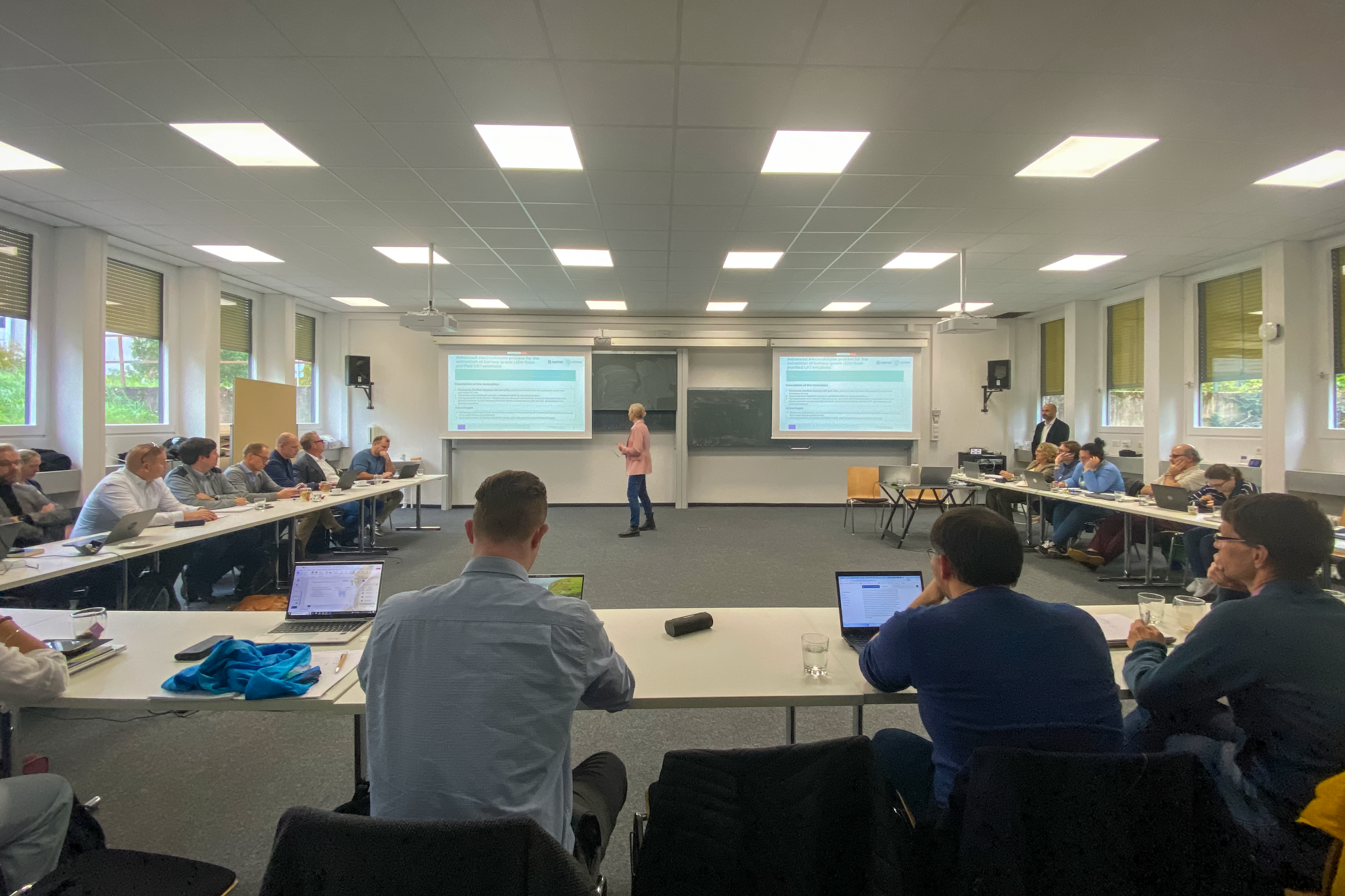
05/11/2024
Proceedings M24 Exploitation workshop
On 16 October 2024, the Karlsruhe Institute of Technology (KIT) was hosting not only the LiCORNE project’s M24 consortium meeting, but also its first exploitation workshop. The event brought together a diverse group of stakeholders, with nearly 15 industry guests and members of the External Advisory Board (EAB), to discuss the latest advancements in lithium (Li) extraction technologies.
The workshop began with a welcome address by Dr. Lourdes Yurramendi [the coordinator of the LiCORNE initiative and Project Director at TECNALIA Waste Valorisation, Energy, Climate and Urban Transition], followed by Nader Akil, Operations Manager at PNO Innovation Belgium, who outlines the objectives of the exploitation workshop and provided an overview of the LiCORNE project. Funded by the European Commission, the project aims to develop competitive technologies for Li extraction and recovery from various feedstocks, including ores, geothermal brines and cathode waste materials. Following this introduction, various partners delivered technical presentations, showcasing their innovative approaches and key exploitable results after 24 months from the start of the project.
Regardless the feedstock considered, all these novel technologies share one theme: sustainability. This focus on sustainability translates into exploring research routes that go beyond the current state-of-the-art (SoA), reducing energy and water consumption and the generation of chemical waste:
- TECNALIA presented two technologies: a. one process for the recovery of Li from off-specification cathode materials using solvometallurgy and membrane electrolysis technologies, a process that aims to reduce waste, while minimising hazardous reagents and energy consumption; b. the second presentation featured a process for the recovery of Li from brines using a combination of ionic-liquid extraction and membrane electrolysis processes.
- SINTEF introduced two new concepts: a direct process for extracting Li from feedstock to metal, avoiding tedious steps and reducing chemical and water consumption; b. an advanced electrodialysis process for the extraction of battery-grade Li hydroxide (LiOH) from purified Li chloride (LiCl) solutions.
- KIT showcased two technologies: a. one process for recovering Li from NMC cathode waste using mechanochemical recycling; b. an electrochemical process extracting Li from geothermal brines using a dual-ion battery concept to selectively extract Li and avoid pH changes.
- FRAUNHOFER-ICT introduced a process for producing high-purity Li hydroxide via electrodialysis and electrolysis, offering a single-step conversion with high efficiency and environmental benefits.
- VITO presented two innovative processes: a. the Gas-diffusion electrocrystallisation (GDEx) process for Li extraction and recovery from low-grade matrices, which is an electrified process with low energy consumption and minimal chemical addition; b. Li-sieve porous spheres for multi-cycle Li recovery from aqueous leachates which features a scalable synthesis and pickling procedure with reduced chemicals consumption.
- NTUA discussed lithium extraction from pegmatite and mica using calcination with additives mixtures, eliminating the need for hazardous sulfuric acid roasting.
Beyond technological presentations, the workshop also facilitated discussions with external participants, including members of the EAB and industry representatives. These exchanges provided valuable insights into the industry’s needs and opened up new routes for collaboration. To facilitate future collaborations, PNO presented several funding opportunities that can be used to bring the most promising technologies and the LiCORNE selected flowsheet to a pilot level.
As the project progresses, the focus will shift now towards the benchmarking and selection of the most promising LiCORNE technologies for upscaling to produce ~1 kg of battery-grade Li by the end of the project. This phase aims to shape a path towards larger piloting and future commercialisation.